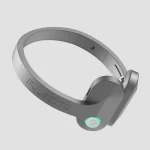Prostate enlargement, or benign prostatic hyperplasia (BPH), is a common condition that affects many men as they age. This article explores the underlying causes, identifies the symptoms to watch for, and discusses non-invasive methods to manage the condition, fostering a deeper understanding without promoting specific products.
Identifying the Causes of Prostate Enlargement
Prostate enlargement typically involves an increase in the number of cells (hyperplasia) in the prostate gland. While the exact cause of this cell multiplication is unknown, it’s linked to hormonal changes as men grow older. Factors such as genetics and lifestyle also play a role in the likelihood of developing BPH.
Common Symptoms Associated with Prostate Enlargement
Frequent Urination
One of the most noticeable signs of prostate enlargement is the need to urinate more often, especially at night.
Difficulty Starting Urination
Many men may find it hard to start urinating, even when they feel the need to go.
Weak Urine Stream
A weakened stream or a stream that stops and starts can also be a symptom of BPH.
Sensation of Incomplete Bladder Emptying
After urinating, you might feel as though your bladder isn’t completely empty.
Subscribe for Free for more insightful health articles tailored to your needs.
Non-Invasive Methods to Manage Symptoms
Lifestyle Adjustments
Simple changes in daily habits can significantly impact symptoms. Reducing fluid intake before bedtime, limiting caffeine and alcohol, and regular physical activity can help manage the symptoms of BPH.
Pelvic Floor Exercises
Strengthening the muscles around the bladder and prostate can improve symptoms. Pelvic floor exercises, similar to those used by women post-pregnancy, can be effective for men.
Scheduled Urination
Planning toilet trips and urinating on a set schedule can help in managing frequent urination.
When to Seek Further Guidance
It’s crucial to consult a healthcare provider if symptoms worsen or if you notice painful urination, blood in the urine, or severe bladder discomfort. These could be signs of more serious conditions requiring professional assessment.
The Role of Diet in Managing Prostate Health
A diet rich in fruits, vegetables, and whole grains can support prostate health. Foods high in antioxidants and omega-3 fatty acids can also help in maintaining a healthy prostate.
Conclusion:
Understanding prostate enlargement is the first step towards managing its symptoms effectively. While lifestyle changes and dietary adjustments can help ease symptoms, it’s essential to monitor any changes and consult with a healthcare provider to ensure the right approach to care.
This blog post aims to be informational and should not replace professional medical advice. Always consult with a healthcare provider for personalized advice.
Want to stay updated on ways to manage your health? Subscribe to our newsletter for more useful health tips and updates!



